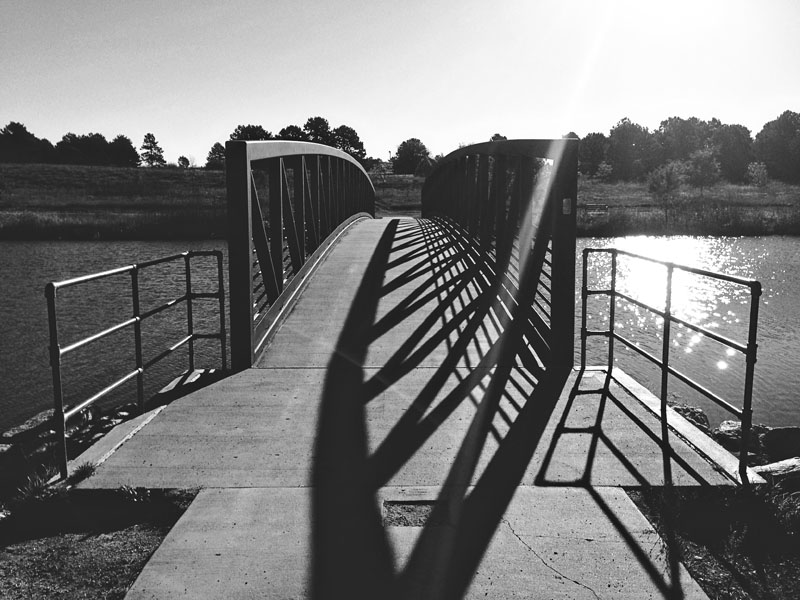We are in a cultural moment where there is a lot of noise. It can be overwhelming to decide you want to adopt a listening posture only to be inundated with voices (strong voices, LOUD voices) with differing opinions. It’s easy in that moment to decide it makes the most sense to stop listening and walk away from the conversation. These contradictory voices can’t all be right, can they? How do you evaluate the validity of what you’re hearing? Who do you trust?
The death of Tamir Rice was a defining moment for me as a transracially adoptive parent. Before that moment I had read a lot with a desire to be a good advocate for my child. I wanted to be educated and to do the right thing for him. I didn’t associate with people who were openly racist. I was teaching my child to love himself just as God made him and I was working to create an environment around him that celebrated and valued diversity. But I have to admit that deep in my heart, I had a trust problem.
I filtered what I read through the lens of my own experience. No one had been openly racist around me or our family. Police had always been polite and almost differential to me in any traffic interactions. My hope (very, deeply, subconsciously) was if my son could just be protected by my whiteness and learn how to behave like I did, then maybe he wouldn’t have the issues these other people were describing.
Watching the video of Tamir Rice’s death told me that I had put my trust in the wrong place. That child had no time to explain himself. No time to be polite. No time to do the “right” thing, whatever that might have been. Whatever I thought I could teach my son to do, I realized sometimes the assumptions of other people would outweigh all my teaching and all his inherent worth as a child of God. The officer who killed Tamir Rice saw what he expected to see. And that assumption caused him to kill a child. A child like mine.
In that moment, I decided to trust the voices of those who were telling me there was a systemic problem in our society. I decided to not just trust my own experience. I decided to ask myself the hard question. “What if they were telling the truth?” I listened without trying to offer a theoretical rebuttal. After a lot of listening, I learned to prioritize the voices of people I personally knew, those with lived experiences, those who shared my values on the most important things, those who loved my family. Those voices were speaking as one– there was a problem.
In today’s climate of information overload, it is easy to just pick the voices that already agree with yours. It’s easy to find the people who will support your opinion and only listen to them. Those voices exist. But I’d encourage you to expose yourself to voices on all sides. Sometimes the biggest gift we can give is to listen without offering the mental rebuttal. We can listen to those we disagree with and ask ourselves the hard question– What if they’re telling the truth? How would it change the way we live and what we believe about our society?
While we should always be critical thinkers, sometimes we have to accept the limitations of our own knowledge base and experience. We have to lean into the knowledge and experience of others who have devoted their lives to the study of whatever topic we’re wrestling with. We need to listen to people who have very different life experiences that allow them to see from a different perspective.
When we hear the voices of people we should trust telling us there’s an issue and we dismiss them, that is deeply painful. I felt that pain when I wrote about our experiences of dealing with a racist (either consciously or subconsciously) neighbor and had people tell me it had nothing to do with race. People wrongly assumed I was a Black woman and told me I was instilling fear in my children and I should expose them to more white people and then we wouldn’t have these problems. As frustrating as it was to not be believed, I recognized I had been that same person. I always wanted to have an answer. I always had an explanation. I always had a “what if” scenario. It couldn’t really be that people were having to deal with this humiliation and danger every day. The pain of that reality felt overwhelming. My denial was an easier way to live.
But it was a dangerous way to live for my kids and my Black brothers and sisters. Facing the ugliness of racism, even when it meant being mocked, when it meant being questioned, when it meant having a stranger write to tell me my son (who was 9 at the time) was the reason he carried a gun. . . facing it was the right thing to do.
If you’re hearing a lot of voices and you don’t know who to trust, I’d encourage you to ask People of Color in your circle which voices they prioritize. If you don’t have any People of Color in your circle, then I’d work really hard to find voices that don’t just support the narrative you already believe. I’d work hard to put yourself in spaces where you’re hearing from those voices. I’d look for people who share your same values when it comes to what’s most important. Pray about it. Don’t assume your own personal experience is the highest arbiter of truth.


2 Comments
Leave a reply →